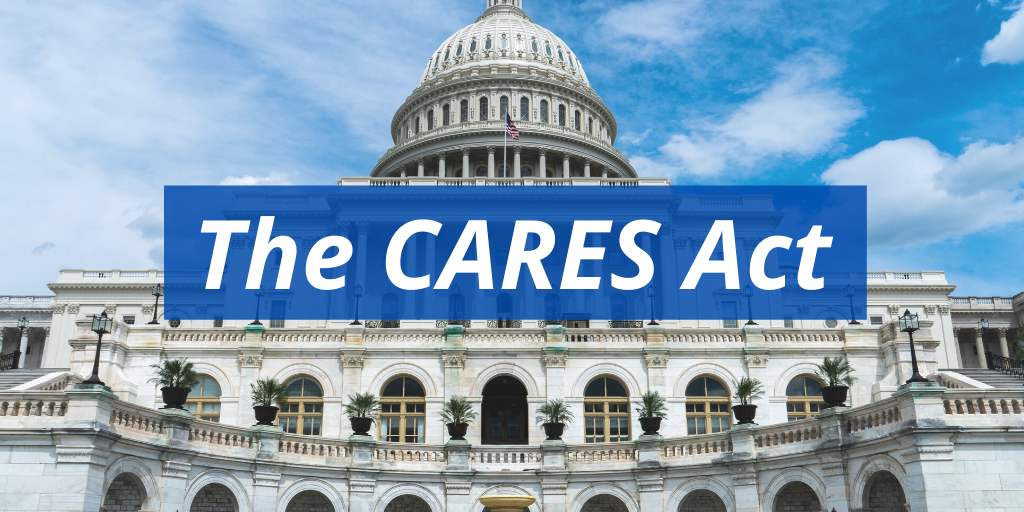
Information Via: ZILLOW PREMIER AGENT | APR 2, 2020
The Coronavirus Aid, Relief, and Economic Security (CARES) Act was signed into law on March 27, 2020, and provides multiple options to help support agents and brokers facing financial hardship due to COVID-19. The law also contains special provisions to help those struggling to pay their mortgage or rent. Here’s where you and your clients can start finding help.
Direct Cash Payments
Under the CARES Act, the majority of U.S. residents will receive one-time cash payments from the IRS. Payments will be based on 2018 or 2019 tax return information — whichever was most recently filed. You should receive your payment as a check in the mail, or by direct deposit if the Treasury has account information for you.
The IRS estimates it will begin distributing payments to eligible residents around April 20. Payment amounts are determined as follows:
- Single filers with adjusted gross income (AGI) of up to $75,000 will receive a $1,200 rebate. Married filers with AGI of up to $150,000 will receive a $2,400 rebate.
- Filers who have AGI above those amounts will receive a rebate that’s reduced by $5 for each $100 they make above those thresholds.
- Single filers with AGI over $99,000, heads of households who have one child and earn over $146,500, and married filers earning over $198,000 are not eligible for the rebate.
- Families receive an extra $500 per child under age 17.
For more information, visit the IRS Economic Impact Payments fact sheet.
Available Loans and Grants
The CARES Act provides two options for credit relief to small businesses impacted by COVID-19. Notably, both loans include forgiveness provisions if the funds are used to maintain or re-hire employees. These programs are administered by the Small Business Administration (SBA) and funds are available on a first-come, first-serve basis, so businesses are encouraged to apply early. Borrowers cannot receive assistance from both programs.
Option 1: Economic Injury Disaster Loans (EIDL)
- Businesses with 500 or fewer employees — including sole proprietors, independent contractors and cooperatives — can apply for a loan of up to $2 million through December 31, 2020.
- Eligible borrowers who have applied for an EIDL loan can request an advance on that loan up to $10,000, which the SBA must distribute within 3 days.
- Applicants will not have to repay advance payments, even if their application is subsequently denied.
- The advance payment may be used for providing paid sick leave to employees, maintaining payroll, meeting increased costs to obtain materials, making rent or mortgage payments, and repaying obligations that cannot be met due to revenue losses.
For more information or to apply for a loan, visit the Small Business Administration.
Option 2: Paycheck Protection Program (PPP)
- Businesses with under 500 employees — including sole proprietors and independent contractors — can apply for loans up to $10 million through December 31, 2020.
- Borrowers can use the loan to support payrolls, such as employee salaries, paid sick or medical leave, insurance premiums, and mortgage, rent, utility payments and additional wages.
- If you maintain your workforce, SBA will forgive the portion of the loan proceeds that are used to cover the first eight weeks of payroll and certain other expenses following origination.
- Loan payments will be deferred for six months.
For more information about applying for the program, visit the SBA’s PPP details page, and download the U.S. Chamber of Commerce’s Coronavirus Emergency Loans Small Business Guide and Checklist.
Unemployment Assistance
The CARES Act provides enhanced unemployment assistance for:
- Individuals already eligible for unemployment compensation under state law
- Individuals who would otherwise be ineligible for benefits under state or federal law, including the self-employed, independent contractors and sole proprietors
These benefits also extend to individuals who are in quarantine or are caring for family members due to circumstances related to COVID-19. Individuals who can telework with pay or who are receiving other paid leave benefits do not qualify.
Under the CARES Act, all eligible individuals will receive the amount equal to what is authorized under their state’s unemployment compensation law. This insurance is available for a maximum of 39 weeks.
The CARES Act also provides an additional $600 per week, available only during the period of April 1 to July 31, 2020. The extra payment would be excluded when determining eligibility for Medicaid or the Children’s Health Insurance Program (CHIP).
To apply for unemployment assistance, contact your state unemployment insurance agency as soon as possible after becoming unemployed.
Tax Relief
The CARES Act contains several tax provisions that may be beneficial to small businesses, but qualifications will vary by individual situation. Consult a tax professional to see if you or your business may be eligible for any tax relief from the law.
Mortgage Forbearance, Eviction and Foreclosure Moratoriums
The CARES Act provides for mortgage forbearance to homeowners with federally backed mortgages as well as eviction moratoriums for tenants of certain properties. The Consumer Financial Protection Bureau has more details about what might be available for you or your clients.
Zillow has more resources about relief options for those who may be unable to pay their mortgage or rent. Find them here.
Copyright: Zillow Premiere Agent